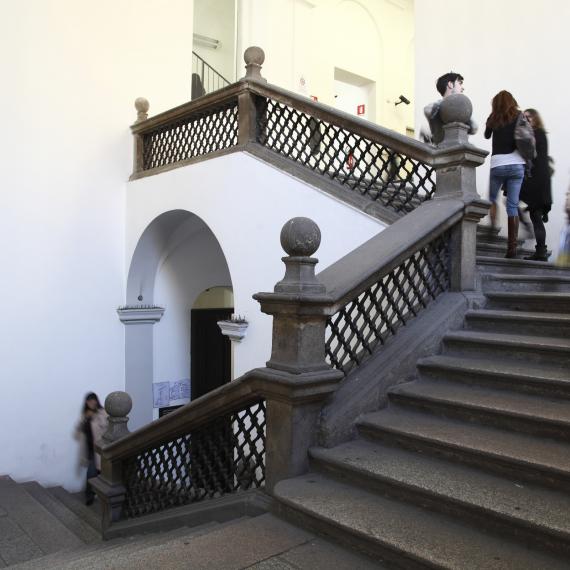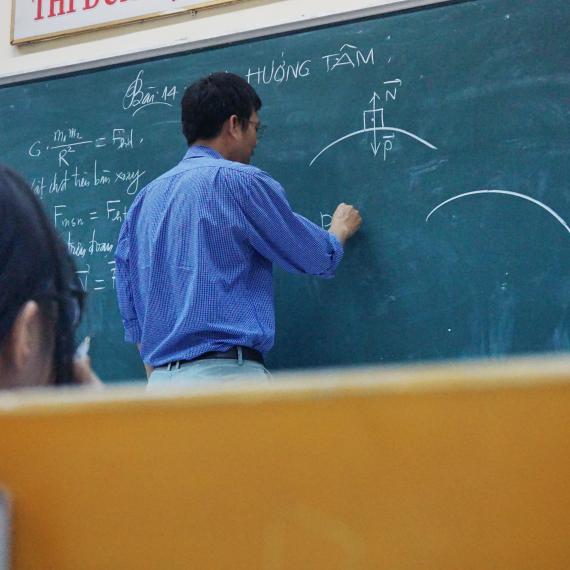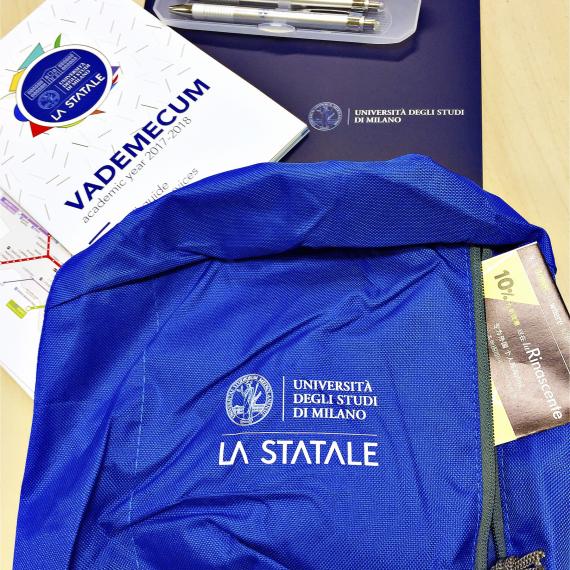Studying at Computer Science and Technology
The educational activities are organized in two semesters:
- lessons of the first semester, from the end of September to December;
- lessons of the second semester, from the end of February to May.
Lessons of the courses which are not showed on the timetable of the first semester will be held in the second semester.
Admission test
All degree courses provided by the Department of Computer Science are at limited enrolment: this means that each degree course has a maximum number of students who can enroll in the first year.
Work-based learning (WBL) initiatives are advertised during events open to all students, even those who have never studied Computer Science at school. Below is a brief description of initiatives organized by the Department of Computer Science for AY 2018-2019.
Where and when
The WBL initiative takes place at the new Department of Computer Science, on via Celoria 18. Six editions were scheduled in AY 2018-19, each with around 50 students.
Registrations
The registration form must be submitted by the school tutor, not by the students or their parents.
Unless otherwise agreed with the teachers in charge, only a limited number of students from the same class can participate in a given edition of the WBL initiative. However, tutors are invited to register as many students as they wish, even from the same class, confirming their availability for more editions. Students may be divided into two or more editions.
Relevant documents
4 documents are required for WBL management
- Agreement. It must be entered into between the school and the COSP (University Study and Career Guidance Service). The agreement lasts two years and applies to all WBL initiatives between the University and the school. Information on the dedicated COSP page. The agreement must be in place before the start of the WBL initiative.
- Training project. The school must complete the training project and submit it by email before the start of the WBL initiative (download document). It will be returned by email, possibly before the beginning of the WBL week.
- Attendance register and activity log. The material will be delivered to students in paper form, unless otherwise agreed (download template).
- Internship evaluation by the host organisation. The form will be sent to the tutor by e-mail, unless otherwise agreed (download template).
Please note that there are about 50 participants for each edition and module customisation is not allowed, except for documented material reasons.
Contacts
It is preferable to send an email to [email protected]. For urgent communications, please contact the teaching office of the Computer Science Department on 0250316250.
Activities and deadlines
Five editions are held during the school year (between October and April). The sixth edition takes place in June, just after the end of the school year.
This internship opportunity, targeting music high schools and multimedia-oriented technical institutes, focuses on the digitization of magnetic-tape sound heritage kept at the Music Informatics Laboratory. Students will have the opportunity to work on each level of the digitization chain: preparation of tapes, use of tape recorders, analog-to-digital conversion, software for the acquisition and editing of digital audio, choice of saving formats, restoration, if required.
This initiative targets music high schools and, more generally, students who have a basic knowledge of music theory. The project involves the creation of musical documents according to the IEEE 1599 international standard, which provides a multi-level representation of a single song musical information. The activity consists in transcribing music scores through a digital score editor (eg Finale or MuseScore), exporting them in XML format, inserting catalogue metadata, creating a graphic map of score images, and an audio map of the tracks to be synchronized using appropriate software.
Sample outputs of these operations are available on the EMIPIU website in the Music Box section
This internship, open to all high-school students, intends to illustrate Operational Research ("the most important invisible profession of the world") and open up new cultural and professional horizons. During the internship, students will learn how to use math to formulate optimization problems and how to use mathematical programming software tools to solve them. The internship will take place in a computerized laboratory, where one or more university teachers will guide students in solving real-life exercises and case studies.
The COSP is the University Study and Career Guidance Service. It organises and coordinates, in close cooperation with the University Faculties and teaching facilities, a series of initiatives to attract high-school students and help graduates enter the labour market.
Presentations
Several events are held every year to present the courses provided by the University department of Computer Science.
Key events
- Faculty Open Day. Generally held in February in the premises of Via Celoria. All the Degree Programmes of the Faculty of Science and Technology are illustrated. It is possible to attend a presentation of the Degree Programmes in Computer Science and participate in a guided tour of some laboratories. For courses delivered in Crema, an open day is held on site, usually in April.
- University Open Day. Generally held in May at the University headquarters, on via Festa del Perdono. All the University Degree Programmes are presented. At the stand of the Faculty of Science and Technology, you can have small-group meetings with teachers and students from the Computer Science department. You may also attend informative lectures and frontal presentations of Computer Science Degree Programmes.
- Guidance initiatives.
- Presentations in schools.
For further information and updates on guidance initiatives and activities, please refer to the COSP - University Study and Career Guidance Service.







